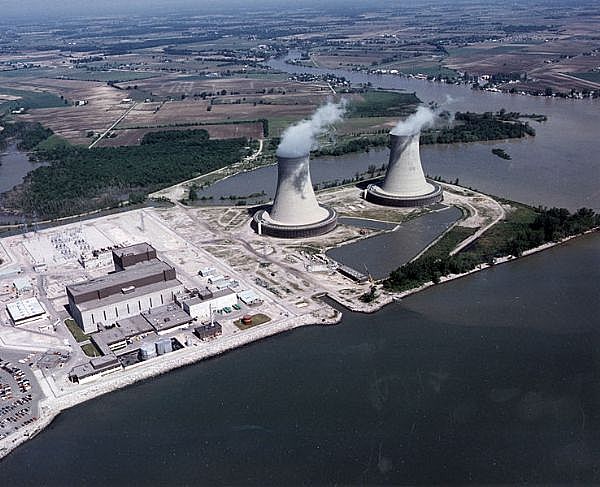
Photo: Jihyun Ryou
 SHIKA, Japan — Near a nuclear power plant facing the Sea of Japan, a series of exhibitions in a large public relations building here extols the virtues of the energy source with some help from “Alice in Wonderland.”
“It’s terrible, just terrible,” the White Rabbit says in the first exhibit. “We’re running out of energy, Alice.”
A Dodo robot figure, swiveling to address Alice and the visitors to the building, declares that there is an “ace” form of energy called nuclear power. It is clean, safe and renewable if you reprocess uranium and plutonium, the Dodo says.
“Wow, you can even do that!” Alice says of nuclear power. “You could say that it’s optimal for resource-poor Japan!”
Over several decades, Japan’s nuclear establishment has devoted vast resources to persuade the Japanese public of the safety and necessity of nuclear power. Plant operators built lavish, fantasy-filled public relations buildings that became tourist attractions. Bureaucrats spun elaborate advertising campaigns through a multitude of organizations established solely to advertise the safety of nuclear plants. Politicians pushed through the adoption of government-mandated school textbooks with friendly views of nuclear power.
The result was the widespread adoption of the belief — called the “safety myth” — that Japan’s nuclear power plants were absolutely safe. Japan single-mindedly pursued nuclear power even as Western nations distanced themselves from it....
SHIKA, Japan — Near a nuclear power plant facing the Sea of Japan, a series of exhibitions in a large public relations building here extols the virtues of the energy source with some help from “Alice in Wonderland.”
“It’s terrible, just terrible,” the White Rabbit says in the first exhibit. “We’re running out of energy, Alice.”
A Dodo robot figure, swiveling to address Alice and the visitors to the building, declares that there is an “ace” form of energy called nuclear power. It is clean, safe and renewable if you reprocess uranium and plutonium, the Dodo says.
“Wow, you can even do that!” Alice says of nuclear power. “You could say that it’s optimal for resource-poor Japan!”
Over several decades, Japan’s nuclear establishment has devoted vast resources to persuade the Japanese public of the safety and necessity of nuclear power. Plant operators built lavish, fantasy-filled public relations buildings that became tourist attractions. Bureaucrats spun elaborate advertising campaigns through a multitude of organizations established solely to advertise the safety of nuclear plants. Politicians pushed through the adoption of government-mandated school textbooks with friendly views of nuclear power.
The result was the widespread adoption of the belief — called the “safety myth” — that Japan’s nuclear power plants were absolutely safe. Japan single-mindedly pursued nuclear power even as Western nations distanced themselves from it....
 WASHINGTON — In an effort to encourage nuclear power, Congress voted in 2005 to authorize $17.5 billion in loan guarantees for new reactors. Now, six years later, with the industry stalled by poor market conditions and the Fukushima disaster, nearly half of the fund remains unclaimed. And yet Congress, at the request of the Obama administration, is preparing to add $36 billion in nuclear loan guarantees to next year’s budget.
Even supporters of the technology doubt that new projects will surface any time soon to replace those that have been all but abandoned.
“My gut feeling is that there is going to be a delay,” said Neil Wilmshurst, a vice president of the Electric Power Research Institute, a nonprofit utility consortium based in Palo Alto, Calif. News on Thursday that Exelon Corporation, the nation’s largest reactor operator, planned to buy a rival, the Constellation Energy Group, only reinforces the trend; until late last year, Constellation wanted to build, while Exelon was firmly against it.
...
WASHINGTON — In an effort to encourage nuclear power, Congress voted in 2005 to authorize $17.5 billion in loan guarantees for new reactors. Now, six years later, with the industry stalled by poor market conditions and the Fukushima disaster, nearly half of the fund remains unclaimed. And yet Congress, at the request of the Obama administration, is preparing to add $36 billion in nuclear loan guarantees to next year’s budget.
Even supporters of the technology doubt that new projects will surface any time soon to replace those that have been all but abandoned.
“My gut feeling is that there is going to be a delay,” said Neil Wilmshurst, a vice president of the Electric Power Research Institute, a nonprofit utility consortium based in Palo Alto, Calif. News on Thursday that Exelon Corporation, the nation’s largest reactor operator, planned to buy a rival, the Constellation Energy Group, only reinforces the trend; until late last year, Constellation wanted to build, while Exelon was firmly against it.
...